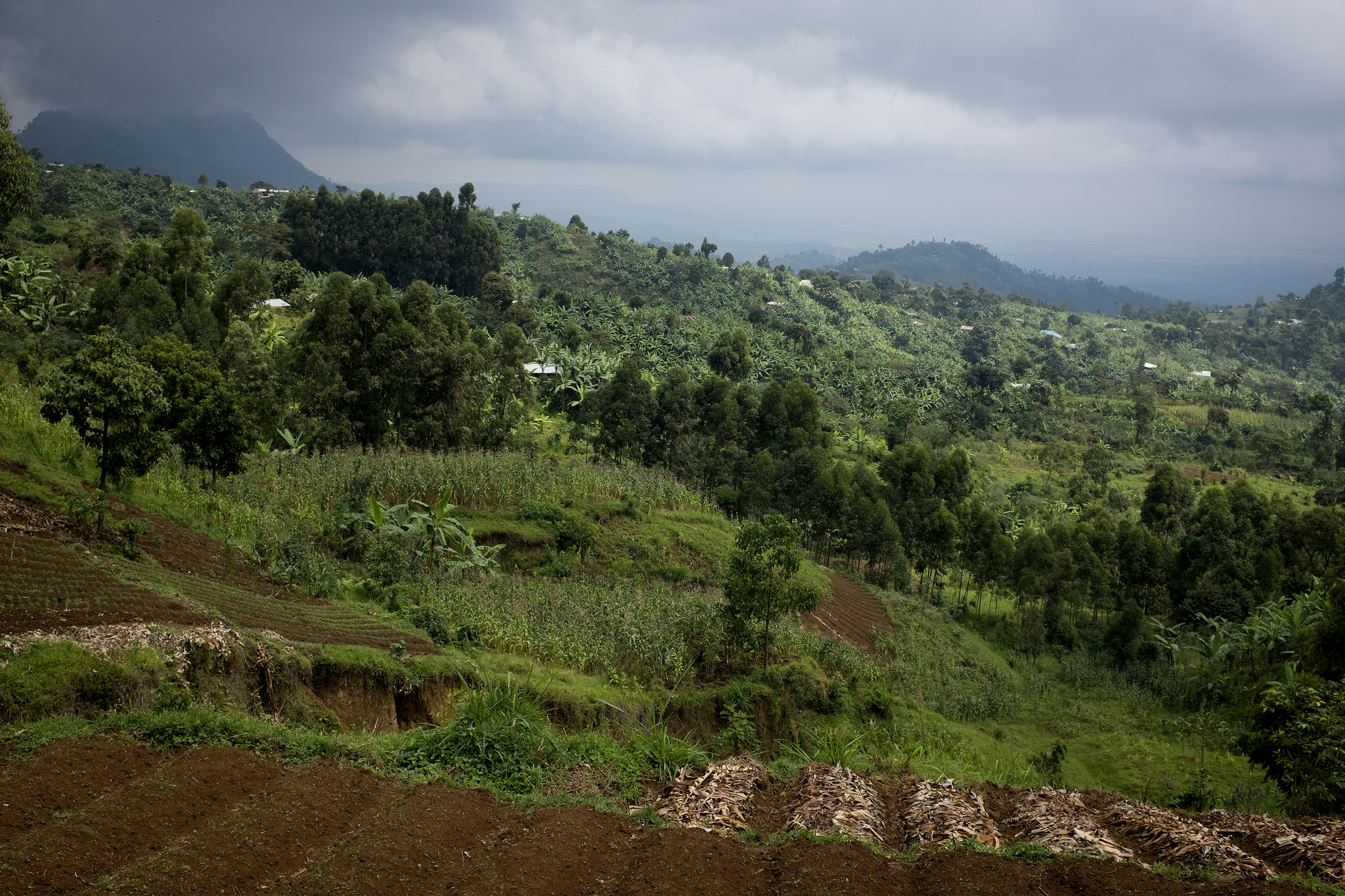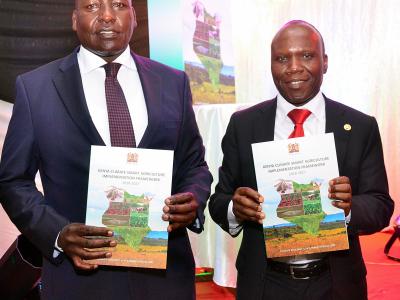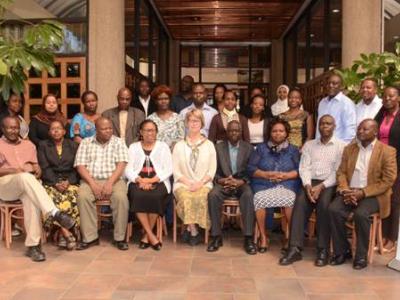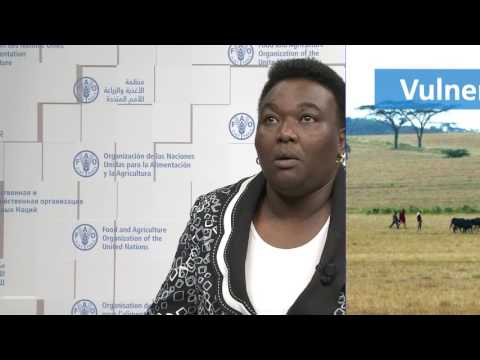
The agricultural sectors form the basis of Kenya’s economy and employ a large percentage of the population. Over 80 percent of the population derive their livelihoods mainly from agricultural activities and the agricultural sector constitutes about a quarter of the GDP.
The dependence on climate- sensitive natural resources for livelihoods as well as food security and nutrition increases the country’s vulnerability to the impacts of climate change. To address these issues, Kenya is shaping the legal framework around how the country addresses climate change adaptation and mitigation.
Thematic areas:
Key collaborators:
- National Governments
Implementing agencies and partnering organizations:
- United Nations Development Programme (UNDP)
- Food and Agriculture Organization of the United Nations (FAO)
- Federal Ministry for the Environment, Nature Conservation and Nuclear Safety (BMU)
Project status:
Completed
Location:
Kenya
Adaptation policies
Kenya has an advanced suite of national adaptation policies, strategies, laws and plans in place. The Kenyan National Adaptation Plan 2015–2030 (NAP) was finalized in 2015, and was one of the first NAPs to be launched in Africa, and globally, by a developing nation. The NAP supports the 2010 Constitution of Kenya and the Kenyan Vision 2030 for a sustainable future, and features an important aspirations for agriculture in national development.
NAP-Ag activities
In the long term, NAP-Ag activities in Kenya are oriented towards promoting and implementing climate-smart agricultural practices for the long-term. Short and medium term contributions include: increasing awareness on climate change impacts and assessing climate risk and vulnerability of agricultural value chains; identifying synergies between adaptation and mitigation; promoting uptake of climate-related information for agriculture; and developing and upscaling specific adaptation in the agricultural sub-sectors.
Resource mobilization (2018)
In Kenya, results from the NAP–Ag Programme have fed into investment proposals under the NAP Readiness window of the Green Climate Fund (GCF), which approved a US$3 million NAP Readiness project to be implemented between 2018 and 2020.
Analysis of the Sustainable Development and Climate Change Nexus: The Case of Kenya (2017)
The objective of this study was to assess linkages between adaptation in the agricultural sector and sustainable development. The synergies and trade-offs between Nationally Appropriate Mitigation Actions (NAMAs), the NAP and the Sustainable Development Goals (SDGs) were evaluated and recommendations were developed.
Assessing Institutional Barriers to National Adaptation Plan (NAP) Implementation in Kenya’s Agriculture Sector (2017)
A comprehensive study was commissioned by the NAP–Ag to assess the barriers and incentives to implement Kenya’s NAP in the agriculture sector, and identify strategies to strengthen the institutional arrangements and regulatory framework on climate change adaptation.
Cost–benefit analysis (2017)
The NAP–Ag Programme is planning training workshops in mid–2017 for government officials on cost-benefit analysis to help strengthen the evidence base for adaptation.
Kenya Climate Smart Agriculture Strategy (KCSAS) and Implementation Framework (2017)
The NAP-Ag supported the consultations and launch of the Kenya CSA Strategy (KCSAS). Its objective is to adapt to climate change, build resilience of agricultural systems while minimizing emissions for enhanced food and nutritional security and improved livelihoods. The specific objectives of the KCSAS are to: (i) enhance adaptive capacity and resilience of farmers, pastoralists and fisher-folk to the adverse impacts of climate change; (ii) develop mechanisms that minimize greenhouse gas emissions from agricultural production systems; (iii) create an enabling regulatory and institutional framework; and (iv) address cross-cutting issues that adversely impact KCSAS. In 2018, the NAP-Ag will support the development of a monitoring and evaluation mechanism as well as an implementation framework, in cooperation with many other regional and international partners.
Capacity needs assessment for climate change adaptation planning (2016)
Capacity needs assessments were carried out within the six key Kenyan institutions that the NAP-Ag is working with to identify areas requiring support to ensure the effective implementation of agricultural-related NAP activities in sectoral planning and budgeting processes.
Gender mainstreaming workshop (2016)
Kenya was the first country in the NAP–Ag Programme to conduct a training workshop for government officers on gender, adaptation and the agricultural sectors. The training focused on why gender matters in the context of climate change adaptation policy frameworks, ways to address gender issues during the formulation and implementation of policies, and how to ensure that gender sensitive working approaches are used in practice.
03 November 2016 -Three days training in Nakuru have taken place to improve the capacity to integrate gender issues in climate change adaptation planning for the agriculture sector. The training has been organized under the auspices of the NAP-Ag programme, jointly organised by FAO and UNDP.
Reports and Publications of relevance to Country Teams
Reports and Publications by country teams
Plans and policies of relevance to NAPs for Least Developed Countries (LDCs)
Planning Meeting Presentations
Planning Meeting Presentations
Planning Meeting Presentations
Planning Meeting Presentations



